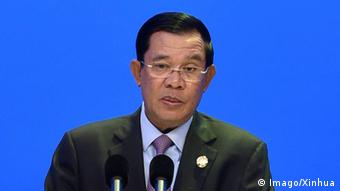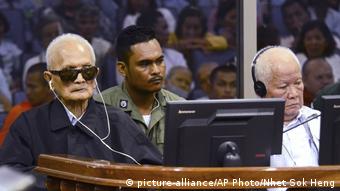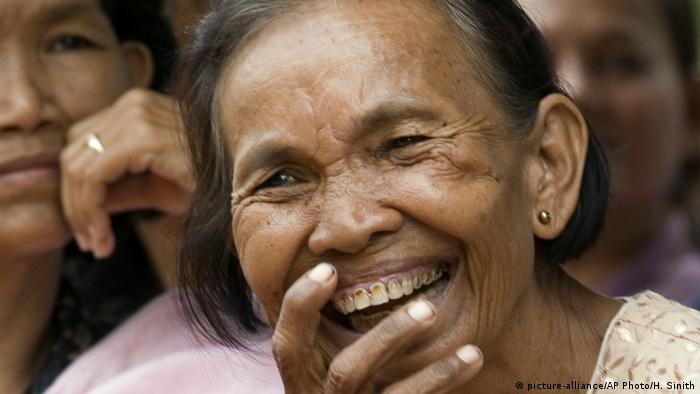Cambodian court dismisses charges against Khmer Rouge official
A UN-backed war crimes tribunal has dismissed charges against a former Khmer Rouge cadre. In 10 years of work, the court has jailed three people responsible for the horrors of the Khmer Rouge regime.
A UN-backed court threw out the charges against a former district commander of Cambodia's Khmer Rouge regime on Wednesday. Im Chaem, a Buddhist nun, was suspected of running a forced labor camp during the organization's four-year rule of the country.
Chaem (pictured above), in her 60s, was charged with murder and crimes against humanity, but two judges - a Cambodian and a German national - ruled the court did not have the capacity to prosecute lower-level officials.
"Im Chaem is not subject to the [tribunal's] personal jurisdiction, which means she was neither a senior leader nor otherwise one of the most responsible officials of the Khmer Rouge regime," the Extraordinary Chambers in the Courts of Cambodia said in a statement.
Chaem (pictured above), in her 60s, was charged with murder and crimes against humanity, but two judges - a Cambodian and a German national - ruled the court did not have the capacity to prosecute lower-level officials.
"Im Chaem is not subject to the [tribunal's] personal jurisdiction, which means she was neither a senior leader nor otherwise one of the most responsible officials of the Khmer Rouge regime," the Extraordinary Chambers in the Courts of Cambodia said in a statement.
The 'Cambodian Genocide'
The Khmer Rouge killed nearly 2 million people in the 1970s during its attempt to transform modern Cambodia into a Marxist utopia. Most of the victims of one of the 20th century's worst genocides died of starvation, torture or disease in labor camps or were killed in mass executions.
Youk Chhang, who suffered at Chaem's camp as a 15-year-old, said he was disillusioned by the court's decision.
"As long as the judges followed the rules and the evidence, we must accept the decision, but it can be difficult sometimes to swallow," he said.
Chhang and his team at the Documentation Center of Cambodia have been detailing the Khmer Rouge's crimes for more than two decades. They provided half a million documents to the tribunal.
A decade of work with little progress
The special court has found only three people guilty for their roles in what is known as the "Cambodian Genocide." Pol Pot, the Khmer Rouge leader himself, died in 1998 before facing justice.

Cambodian Prime Minister Hun Sen has publicly criticized pursuing new trials against Khmer Rouge cadres.
After a decade of work costing over $260 million, critics of the tribunal's most recent decision said it further undermined the court's credibility. The tribunal needs to explain its decision to survivors, said Panhavuth Long of the Cambodian Justice Initiative, which monitors the trials.
In addition to the court's infighting and resignations, Cambodian Prime Minister Hun Sen has publicly opposed further prosecutions. The former Khmer Rouge cadre, who has served as prime minister for more than 30 years, said pursuing more trials could ignite civil unrest.

Nuon Chea and Khieu Samphan are the most senior surviving members of the Khmer Rouge regime. They are currently serving life sentences.
A series of recent cases, however, had increased hope for new convictions.
In 2014, Nuon Chea, the 90-year-old "Brother Number Two", and ex-head of state Khieu Samphan, 85, were the first senior leaders to be sentenced to life in jail for crimes against humanity. The pair is also currently facing a separate trial on genocide charges.
mcm/sms (Reuters, AFP)


No comments:
Post a Comment